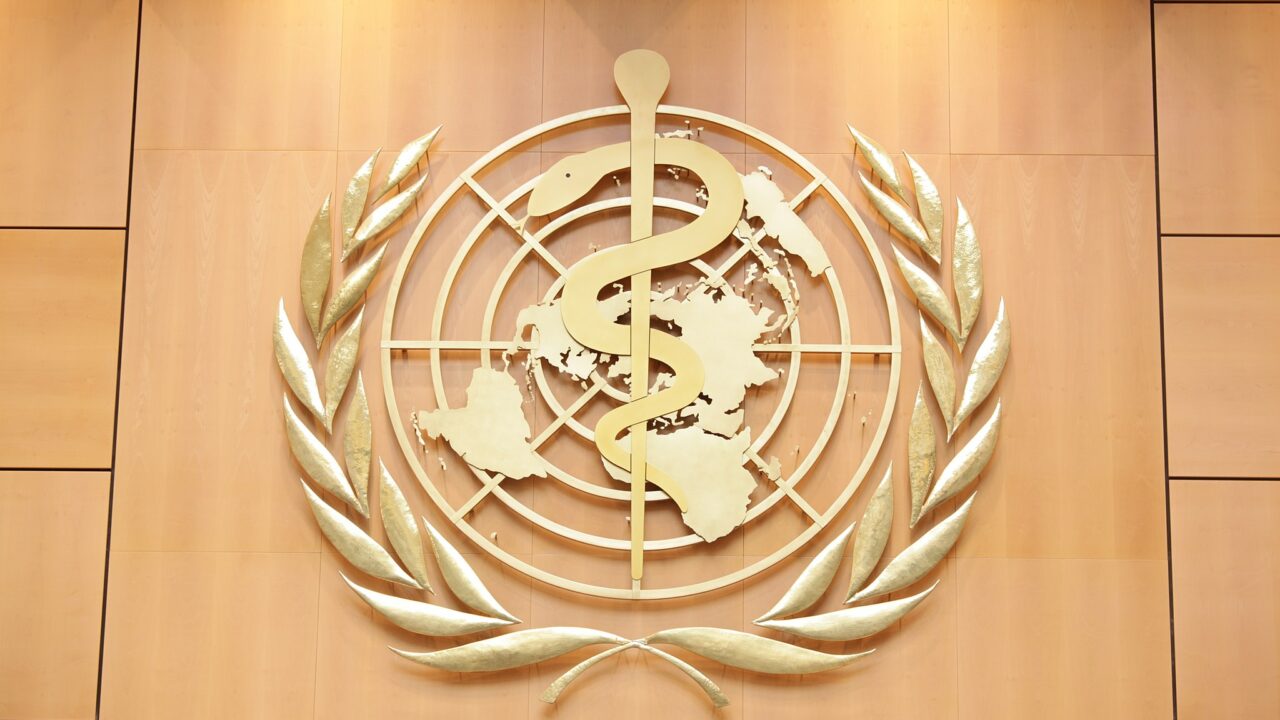Europe’s post-pandemic strategy for the WHO
The EU has an opportunity to become a key strategic actor on global health – by upgrading its observer status within the WHO, making even greater financial contributions to the organisation, and working in coordination with the United States
Covid-19 has shown, to our distracted and fast-changing world, the essential role of the World Health Organization (WHO) in the survival of humanity, and the value of solidarity and cooperation. In 2020 then US president Donald Trump suspended contributions to the WHO, accusing it of collusion with the Chinese government. The decision shocked the international community – mainly because it came at a time when almost all states recognised the need for efficient global multilateral governance.
The WHO’s work on the treatment of diseases worldwide requires not only a great deal of effort, competence, and time but also large amounts of money and autonomy. It is certainly true that the WHO is slowed by organisational deficiencies and bureaucracy but, regardless, it is counterproductive to reduce contributions to its budget. The WHO receives funding from two main sources – contributions from its 194 member states (calculated as a percentage of their GDP), and voluntary contributions from member states, international organisations, public and private foundations, and others. Tragically (if unsurprisingly), the US halved its voluntary contributions to the organisation between 2019 and 2020, leaving Germany as the largest source of such donations.
Yet, overall, long-standing donors increased their contributions to the WHO last year, while new actors (such as Italian regional entities) decided to support the organisation’s budget, including through the Covid-19 Solidarity Response Fund that it recently introduced. Even China climbed in the donor rankings – from 37th place to 20th, contributing 1.01 per cent of the WHO’s budget. The European Commission renewed its commitment to the organisation by increasing its contributions from 3.05 per cent to 6.24 per cent, placing it in fifth place.
Governments around the world should encourage public and private entities to donate to the WHO by providing fiscal exemptions. In the United States, for example, many individuals receive tax relief in return for making charitable donations. Between 1994 and 2018, Bill and Melinda Gates gave their foundation more than $36 billion, producing tax savings of approximately 11 per cent of these contributions. (The foundation, structured as a charitable trust, is tax-exempt.)
The pandemic has put a spotlight on the urgent need to boost countries’ preparedness and response capacities for health crises. It is important, then, to equip the WHO with tools for not only monitoring but also intervention. To avoid relying on luck, the focus of this effort should be on investing in research and technology. Europe should deepen and expand cooperation on the BioExcel project, to improve the performance, efficiency, scalability, and accessibility of research. In the early stages of the pandemic, the European Centre of Excellence for Computational Biomolecular Research gave health experts priority access to its facilities and its cutting-edge software; their engagement with the organisation provided support in the study of molecular dynamics in the fight against covid-19.
Meanwhile, the WHO is considering whether to establish a rapid response task force. Just as NATO is equipped with military forces that it can swiftly deploy in security crises, the WHO should have health forces that are ready to intervene in response to cross-border health threats. Otherwise, the WHO’s collective efforts will risk paralysis that could have severe psychological, health, and economic effects.
Before the pandemic, global health was not high on the European political agenda
Before the pandemic, global health was not high on the European political agenda. But covid-19 highlighted the need for a global health strategy in which the WHO has a central role. The United States’ suspension of its contributions to the WHO called for the EU to fill financial and leadership gaps within the organisation – and member states such as Germany and France have already stepped in. Despite the lack of coordination in its member states’ initial responses to the pandemic, the EU soon adopted a joint approach to the crisis. In November 2020, the Commission announced a set of proposals for a European Health Union that would directly protect the health of EU citizens. The bloc has reiterated its commitment to protecting all 27 member states, providing a plan that responds to the health needs of society. The EU’s new regulation on serious cross-border health threats focuses on improving the resilience of health systems, the transparency of monitoring mechanisms, coordination and data collection, and the strength of EU bodies such as the European Medicines Agency and the European Centre for Disease Prevention and Control.
The EU should also seize the moment by upgrading its observer status in the WHO and making even greater financial contributions to the organisation – with the aim of supporting multilateralism at a time of growing nationalism and geopolitical tension. The bloc began to slowly increase its engagement with health issues a decade ago, before accelerating the process in 2019 with a coordinated initiative that resulted in a new resolution on food safety (which it finalised in November 2020). And the bloc’s proactive approach since then is reflected in its current efforts to reinforce the WHO’s internal structure. The EU should take the opportunity to become a key strategic actor on global health, working in coordination with a US that is now fully engaged with the issue once again.
Minister Plenipotentiary Giuseppe Scognamiglio is an Italian diplomat, currently the editor of eastwest magazine, founder and chairman of the eastwest European Institute, and professor of geopolitical scenarios and political risk at LUISS Guido Carli University in Rome and Federico II University in Naples. He is a member of the ECFR Council. Scognamiglio previously worked at the United Nations on human rights and equal opportunities.
The European Council on Foreign Relations does not take collective positions. ECFR publications only represent the views of their individual authors.



